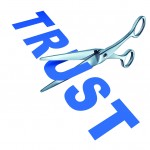
Widgetized Section
Go to Admin » Appearance » Widgets » and move Gabfire Widget: Social into that MastheadOverlay zone
Does The Company Culture Fit?
How to try on a new company during the interview process
 Have you ever found yourself at work thinking, “Who are these people? I have nothing in common with them and don’t understand their office behavior.” Incompatibility between an employee and workplace peers is not uncommon. It seems that you typically don’t learn about a company’s “Corporate Culture,” or personality, until you’ve been there a while. The good news is that if you are looking for employment—now or in the future—there are things you can do and observe to prevent a total mismatch from happening again.
Have you ever found yourself at work thinking, “Who are these people? I have nothing in common with them and don’t understand their office behavior.” Incompatibility between an employee and workplace peers is not uncommon. It seems that you typically don’t learn about a company’s “Corporate Culture,” or personality, until you’ve been there a while. The good news is that if you are looking for employment—now or in the future—there are things you can do and observe to prevent a total mismatch from happening again.
What is Corporate Culture?
According to Bruce A. Hurwitz of Hurwitz Strategic Staffing, Ltd., “A company’s culture is the ethical/behavioral framework within which a company operates.” Hurwitz points out that cultures can be quite different from company to company—from a very conservative IBM model, where the dress code is the blue suit, white shirt, red tie, to a much more liberal culture in a place like Google that has an extremely casual dress code. A dress code can give you your first clue about the company’s culture, but there is more evidence to gather to give you the deeper picture of who they are.
Beyond the dress code, it is the things you don’t see right away: attitudes, actions, and behaviors that are the core of the company’s character. Hurwitz says of corporate culture, “It’s what you (corporate employees) do and, more importantly, what you don’t do. In other words, what is acceptable and what is not.”
Carolyne Hadden, Director of The Hadden Group/a division of Thinking a Head, adds that corporate culture “is the shared values and practices of the company’s employees,” including “traditions, atmosphere, dress code, communication, professionalism.” That’s key to a culture: it has to be shared. Good or bad, ideally everyone is expected to be on the same page.
Who Creates Company Culture?
At a small start-up, it is necessarily the owners who create the culture, but as a company grows, there is the opportunity to choose the best method to develop the culture. Cynthia Trivella, HR Brand Communications & Marketing Professional at NAS Recruitment Communications, says that a “good company culture runs up the ladder rather than trickle down from the leadership ranks. A less desirable culture is dictated by leadership without the benefit of opinion or input from the employees.”
We may all hope to work with a company that understands the impact this choice will have on the employees. Trivella continues, “There are some companies that understand the value and direct correlation between happy, engaged employees and the effect to the company’s customers and subsequently, bottom line.” Unfortunately, Trivella says, it is more common to see examples of the company that doesn’t get this. Even though a company usually wants happy, engaged employees, they frequently shoot themselves in the foot making for unhappy employees following rules that don’t make sense to them and leaving the employee disengaged.
Be a Detective
When you see it in black-and-white it may make perfect sense, “Of course I want to work at a company where I will be happy.” But have you done the research necessary to find out if you will be happy? In order to learn about the company you’re “interviewing,” Hadden suggests that you go to the company’s website and review the entire site. Hadden notes that some companies discuss their corporate culture on their Website. She also recommends the website Wetfeet.com that gives you information on the company’s culture from the employee’s perspective.
Another tip from Hadden is to arrive at the interview early—she recommends being unannounced if possible. Take that time to observe. How do the employees interact? Are they professional in their behavior towards each other? Are they dressed the way you expected for the work environment?
Hurwitz contributes some additional clues for this detective work. When you are on the company website, look at photos, notice how the company presents itself. Ask yourself if it looks like a fun place to work. Are employees recognized for their accomplishments?
Trivella goes downright Sherlock Holmes with her suggestions, but you want answers, don’t you? She suggests that if you know any names of employees, check them out on social media. Trivella says, “A common connection may be found and open a door for conversation with someone there, or formerly so.” She also recommends a bit of sleuthing in the Yahoo!Finance and Glassdoor employee comments, and check on the company’s financial stability. LinkedIn is also a terrific place to find information, especially if you have a 1st degree connection with someone at the company. But even with a 2nd degree connection, Hurwitz suggests sending a message and asking questions about the corporate culture. “There’s nothing wrong with that,” he says.
How much a company uses or doesn’t use social media can say much about them, as well. Trivella says, “Companies that do not participate in any form of social media use may be considered ‘old-fashioned’ or behind the times in more than just a social presence. The perception can spill over to a company lacking technological advancements.” She also points out that a good social presence has it’s own clues in the company’s interaction with the public and use of its brand and reputation.
Regarding possible shared interests with potential fellow employees, Hadden recommends that if you know any employees names, you could look them up on social media pages to see if there is any common bond among the group—like athletes who love to run, or gourmands who love to eat out.
The Job Interview
There’s an abundance of information to be had at an interview just through observation, so open your senses like an artist might. Listen to your get instincts. Hurwitz suggests noticing the atmosphere during your visit. “Is there tension in the air; do staff kid around and engage in open conversation or is everyone behind closed doors; is the place clean; are desks tidy and well-organized?” Trivella says that you should be aware of the body language of the interviewer(s), and “when questions are asked about weaknesses and strengths, answer truthfully, and ask how these will impact or affect the people currently in the department or team. It’s also important to know about the personality, likes and dislikes of the supervisor. “
Our experts recommend asking pointed, probing questions during the interview process. If you pay close attention, and perhaps read between the lines, you will know more about the culture of the company by the end of the interview. Here are a few suggestions:
- If a new position, why is the position being created, and if an existing position, what would you want continued/done differently?
- What is your turnover rate?
- Why do you like working here?
- Who, what type of person, succeeds here?
- How are decisions made, and how are those decisions communicated to the staff?
- Does the organization emphasize working in teams?
- What are the organization‘s priorities for the next few years?
- Are there established career paths for employees in this position?
With these tools in hand, you should be able to make an informed decision about whether a particular company is a good fit. Remember, you will be associated with your employer for 168 hours a week, and so the bottom line is, according to Hurwitz: “If you are not comfortable with the way they operate, with their values, with their customs, then you will not last long. Either you will quit or you will be fired. Regardless of qualifications, the key to keeping a job is fitting in.”







You must be logged in to post a comment Login